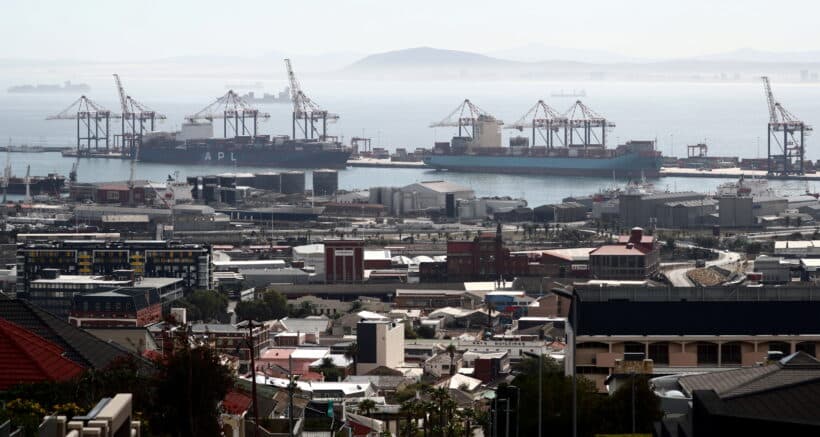
Namibia and South Africa are in talks to launch infrastructure projects worth R7bn ($377 million) over the next three years to address current rail and port inefficiencies.
The Namibian Executive Director for the Ministry of Finance and Public Enterprises, Titus Ndove told CNBC Africa that his ministry is mobilising an initial R2bn this year as part of the project linking the two nations and other parts of the Southern Africa region.
South Africa’s economy barely escaped a recession last year as transport bottlenecks and a severe shortage of power constrained economic activity, forcing the government to rope in the private sector to improve efficiencies at its ports and improve its rail network.
“We are elevating our bi-national arrangements with the government and [we have identified] different areas of collaborations ranging from tourism, border protection, water issues, trade facilities and seeking ways to go hunt together for more markets,” Ndove said.
South Africa is Namibia’s largest trading partner and both countries are members of the Southern African Customs Union, the world’s oldest customs union.
Ndove told delegates at the second annual NinetyOne Infrastructure Forum that it was vital that South Africa resolves its logistics and port crisis by investing in key infrastructure.
“Most of our goods- about 70% of them coming from South Africa- move on the road and that has complications in the form of high maintenance costs for the roads. Sometimes we transport dangerous goods, which ideally, we want to get them off the road and carry on the rail.”
His call was backed by Helvi Fillipus, a senior government adviser who added that Namibia was specifically targeting rail infrastructure investments to help alleviate existing pressures.
“We are looking at the rail infrastructure because current ones are out-dated and aged and therefore need to be upgraded. In addition, we have an ambition as a country to position Namibia as a logistics hub in the Southern Africa region, and specifically, we are targeting to provide services to our landlocked neighbours,” she said.
“We need to stabilize the system so that we are able to move heavier cargo on the rail. We also need to increase the speed at which the trains can move because at the moment it takes a longer to get the goods from one point to another.” At the conference, Namibia presented several infrastructure projects ranging from energy, rail, port expansion and green hydrogen to oil and gas.

